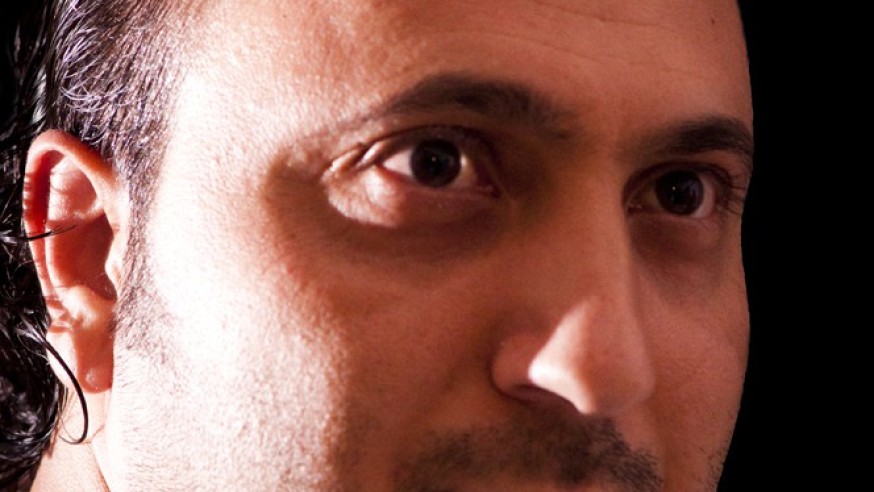The regime detained Mohammad Saleh when he was at home in Homs. ISIS assassinated Raqqawi activists who were hiding in Urfa, Turkey. In Moadamiyeh, a suburb of Damascus, the Army of Fatah, so-called opposition, releases bloodied corpses from its detention centers. In Douma, the Army of Islam holds women and children in cages on the rooftops of the city as human shields.
These are merely glimpses of headlines about the current state of Syria. The Syrian that is able to keep up with the multiple, fractured geographies of this country has a patience that rivals that of Job. The Syrian that is stuck between lethal powers and conquests, who is parsed out to the global negotiation tables that are attended by everyone except for the Syrian whose voice has gone hoarse from attempting to become a presence.
If the Syrians closed their doors in the face of the world, and escaped from the cameras so that the world could not see their weakness, their displacement. Syrians have put up pictures on their walls of those long gone, and have let sadness break into their houses as the outside world did not allow them to belong in any space.
Between the regime’s imprisonment of Mohammad Saleh and the steady stream of mutilated bodies being released from the same prisons, and the cages of shame belonging to Zahran Alloush in Ghouta, Damascus, the Syrian stands bewildered, a witness between two murderers: the former to be expected, and the latter shocking, as it bears witness to the brutality and extremism that is contrary to the revolution waged by Syrians.
We can understand the mystery of the pain and suffering the families who have survived through bombings and the criminality of the regime. And, if what Zahran and his army have said is true, we can understand that this was a reactionary demand by some of these parents, to cause this suffering having, in a moment of pain and loss of their loved ones. But we have to understand that these are reactionary; the revolution is characterized by actions, not reactions. It is unlike the regime, who leaves its soldiers to be killed for its throne and will stop at nothing to protect itself. This reactionary behaviour, however, with the images of women and children in cages, is a showcase of the death of the alternative.
Nietzsche, the philosopher, is known for saying: “He who fights with monsters should look to it that he himself does not become a monster.” Is this not what has happened to Zahran Alloush, whose hatred led him to treat prisoners like the Syrian regime?
Verifying things leads us to try to understand the transformations that the revolution has undertaken: from an environment that embraced freedom and roses for all Syrians, to one where sons of the country are being killed in “opposition prisons.” This shift is why the Syrian revolution has failed thus far; they have failed to convince Syrians that they are a viable option.
On the other hand, it refers to the ideology which dominates some of the Islamic Brigades, to which Alloush belongs. Alloush, in fact, raised many doubts about the revolution, ever since his release from Syrian prisons. His actions have also proven themselves to be counter-revolutionary, specifically the arrests of Razan Zeitouneh and Samira Khalil; Nazim Hammadi who fled and whose mother was arrested instead; the bombings of Damascus in response to regime bombings; to the executions of other faction leaders in Ghouta.
We cannot say that these acts belong on the path to revolution and freedom. Reason, which governs supreme, has long rejected Alloush since he raised his Islamic banner. The response to his cages has been slogans for Alloush to treat his prisoners in a civilized manner, and to pressure the regime by proving the good treatment of the prisoners, releasing a video for each detainee every week to prove humane treatment and letting the captives send letters to their families. But Alloush’s dominating ideology leads them far from this behaviour; the regime is working diligently to push opposition actors to act like Alloush in order to legitimize themselves in this war.
Is this not the regime that arrested peaceful activists, like Mohammad Saleh and released Zahran Alloush and his ilk?
If we want to win this battle of death, we must not ‘become the monsters we are fighting,’ despite the fact that what is happening does not leave us with many options. We have to realize that we revolted against that which violated our freedom. We should not mimic the regime in his violation of prisoners; rather, these people should not even be prisoners, they are civilians.
As a result, Syrians launched a campaign entitled “We are a Moral Alternative to the Regime.” This campaign aims to show the difference between the revolution that has slipped through our fingers and Alloush’s “revolution.” Is it possivle to pick up the pieces, or are we at the point of no return?




